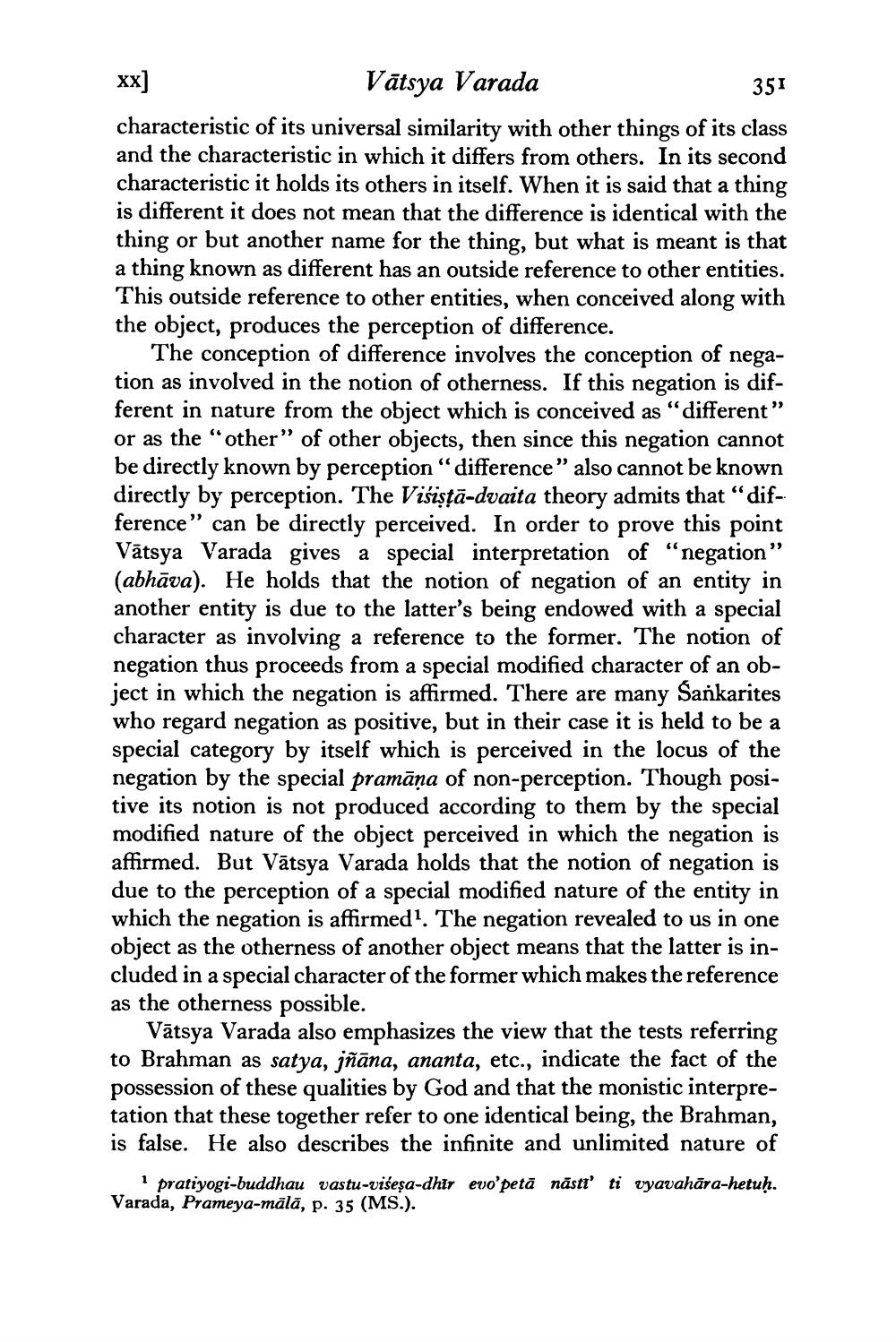________________
xx] Vātsya Varada
351 characteristic of its universal similarity with other things of its class and the characteristic in which it differs from others. In its second characteristic it holds its others in itself. When it is said that a thing is different it does not mean that the difference is identical with the thing or but another name for the thing, but what is meant is that a thing known as different has an outside reference to other entities. This outside reference to other entities, when conceived along with the object, produces the perception of difference.
The conception of difference involves the conception of negation as involved in the notion of otherness. If this negation is different in nature from the object which is conceived as “different" or as the “other” of other objects, then since this negation cannot be directly known by perception “difference" also cannot be known directly by perception. The Višisțā-dvaita theory admits that “difference” can be directly perceived. In order to prove this point Vātsya Varada gives a special interpretation of “negation" (abhāva). He holds that the notion of negation of an entity in another entity is due to the latter's being endowed with a special character as involving a reference to the former. The notion of negation thus proceeds from a special modified character of an object in which the negation is affirmed. There are many Sankarites who regard negation as positive, but in their case it is held to be a special category by itself which is perceived in the locus of the negation by the special pramāņa of non-perception. Though positive its notion is not produced according to them by the special modified nature of the object perceived in which the negation is affirmed. But Vātsya Varada holds that the notion of negation is due to the perception of a special modified nature of the entity in which the negation is affirmed". The negation revealed to us in one object as the otherness of another object means that the latter is included in a special character of the former which makes the reference as the otherness possible.
Vātsya Varada also emphasizes the view that the tests referring to Brahman as satya, jñāna, ananta, etc., indicate the fact of the possession of these qualities by God and that the monistic interpretation that these together refer to one identical being, the Brahman, is false. He also describes the infinite and unlimited nature of
pratiyogi-buddhau vastu-višeșa-dhir evo' petā nāstr' ti vyavahāra-hetuh. Varada, Prameya-mālā, p. 35 (MS.).




